Indianz.Com Video: Republican lawmaker blocks Wounded Knee sacred site bill
WASHINGTON, D.C. —
With time quickly running out in the 118th Congress, a leading Democratic lawmaker is laying down the law when it comes to advancing Indian Country’s legislative interests.
In remarks on the floor of the U.S. Senate last Thursday, Sen. Brian Schatz (D-Hawaii), said the Senate Committee on Indian Affairs has been working across party lines to benefit American Indian, Alaska Native and Native Hawaiian communities. But he expressed a sense of frustration about a significant number of bills that have yet to see final action in the chamber.
“There are currently more than a dozen bills that have advanced out of
our committee on a unanimous, bipartisan basis but have yet to receive
full Senate consideration, and there is no good reason for them to
languish for months or even years without action,” Schatz said his remarks in the chamber currently controlled by Democrats.
As chair of the committee since 2021, Schatz has overseen the enactment of legislation that has brought a record level of resources to Indian Country, totaling tens of billions of dollars. Despite his leadership perch, he did not offer a theory for the lack of movement on bills that are supported by Democrats and Republicans alike.
But as Schatz brought up three bipartisan bills for passage in the chamber,
an explanation for inaction soon arrived — courtesy of two Republicans, whose party will soon gain control of the Senate thanks to the November 2024 election.
Sen. Mike Rounds (R-South Dakota) attempted to bring up S.2088, the Wounded Knee Massacre Memorial and Sacred Site Act, for passage as well. The bill would protect 40 acres at the site of the Wounded Knee Massacre in South Dakota on behalf of the Oglala Sioux Tribe and the Cheyenne River Sioux Tribe.
“As you all know, the Wounded Knee Massacre not only represents a low
point in U.S.–Lakota relations, but it also serves as truly one of the
darkest moments in our nation’s history,” Rounds said of an incident in which U.S. Army soldiers massacred more than 300 Lakota women, children, elders and men on December 29, 1890.
“To date, the Wounded Knee Massacre grounds remain a symbolic site,
with tribal members regularly visiting the area to honor the deceased,” Rounds said of the land held sacred by Oglala and Cheyenne River.
But a fellow Republican who resides more than 1,500 miles from Wounded Knee objected. Sen. Thom Tillis (R-North Carolina) said he would not allow S.2088 to pass because he hasn’t been able to secure federal recognition for the Lumbee Tribe, a state-recognized group in his backyard.
“I believe that the Wounded Knee Massacre Memorial is at a sacred
site, and the act really does need to come into law — just not yet,” Tillis said. “The reason is, I’ve got an issue with their tribal leadership. I’ve got an
issue with the Sioux’s leadership going after the Lumbee Tribe in
eastern North Carolina.”
But instead of explaining what Sioux tribal leaders have supposedly done to offend him, Tillis focused on an entirely different Indian nation. He chastised the Eastern Band of Cherokee Indians in his home state as being part of a “casino cartel” that has opposed federal recognition for the Lumbee Tribe.
After claiming that he did the Eastern Band a favor by “doing the right thing” by recognizing the tribe’s legal right to engage Indian gaming, Tillis said his “reward was to have them use some of the treasure that was gained from my support in the [North Carolina] statehouse to pay lobbyists huge sums of money to discredit the
application for recognition of the Lumbee Indians.”
Tillis also singled out the United Indian Nations of Oklahoma (UINO), an organization whose membership does not include Oglala or Cheyenne River in South Dakota, for opposing the Lumbees. And he lashed out against a prominent Indian lobbyist — Wilson Pipestem, who does not represent the Sioux tribes either.
But in accusing the Eastern Band, UINO and Pipestem, who is Otoe-Missouria and Osage, of “lying” and spreading “misinformation” about the Lumbees, Tillis incorrectly and repeatedly identified the lobbyist as “William” in his remarks on the Senate floor. And even after Rounds offered assurances that he would not object to the federal recognition bill, the southern-state Republican refused to budge, resulting in the Wounded Knee sacred site bill being blocked from passage.
“If I had tribal leaders who were not lying to constituents and misinforming them on the background of the Lumbee Tribe and knowing that they will continue to, I have no
other option than what I did today,” Tillis said.
The remarks represent the first time Tillis has publicly confirmed that he has objected to the passage of Indian Country bills, as Indianz.Com reported earlier this month. According to multiple tribal advocates, he has been placing a “hold” on such legislation, preventing lawmakers like Rounds from moving quickly on items that are bipartisan in nature and are considered non-controversial.
“So it’s very disappointing that he would hold as hostage this particular piece
of legislation, which is of solid intent to help repair relations
between the Oglala Lakota, the Cheyenne River Sioux Tribe, and the
government of the United States in a way which does not impact his
tribe or the challenges that he has with getting his tribe recognized
whatsoever,” Rounds said of the Wounded Knee bill.
Typically, holds in the Senate never become public, despite the potential for them to prevent legislation from being approved without resorting to a roll call or other votes that can further delay movement. Almost every Indian Country bill, in fact, is passed by unanimous consent, a tradition that has continued regardless of which party is in charge of the chamber.
But now that he’s finally out in the open about his tactics, Tillis promised to spend the “coming weeks and months” talking about “the individuals, the lobbyists, the tribal leaders and the groups” that he claims are hindering S.521, the Lumbee Fairness Act. He outlined those plans even though Rounds suggested that his fellow Republican’s approach doesn’t appear to be working out for the Lumbees, whose status as an Indian nation has been in doubt for more than 130 years.
“But if we can’t have ours, I guess there is always the possibility that
he will not be able to get his, as well,” Rounds said of the legislative stalemate created by Tillis.
Despite Tillis’s objection to the Wounded Knee Massacre Memorial and Sacred Site Act, the Senate passed — by unanimous consent — the three bills that Schatz brought up before Republican colleagues went head-to-head. In doing so, the Democratic chair of the Senate Committee on Indian Affairs explained what is going to happen in the waning days of the 118th Congress, where less than a month remains to deliver on legislation fulfilling the U.S. government’s trust and treaty obligations.
“I just want to make it clear to everybody: We are going to spend a lot of time on
the floor together,” Schatz said.
“There will be no cheap holds. There will be no convenient holds,” Schatz added, referring to tactics that can delay movement on bills.
“We will give people a chance to work out their problems,” he concluded. “But we are going to do this on the floor live like a real legislature and we’re going to get this done.”
From left: Sen. Lisa Murkowski (R-Alaska), Sen. Tina Smith (D-Minnesota), Sen. Brian Schatz (D-Hawaii) and Sen. Ben Ray Luján (D-New Mexico) huddle after a meeting of the Senate Committee on Indian Affairs in Washington, D.C., on November 20, 2024. Photo by Indianz.Com (CC BY-NC-SA 4.0)
The three Indian Country bills approved last Thursday follow:
* S.1322, the Unlocking Native Lands and Opportunities for Commerce and Key Economic Developments Act, also known as the UNLOCKED Act, a bill to ensure tribes can lease their lands for economic development and other purposes without seeking federal approval for every action.
* S.2868, a bill to ensure the Lower Sioux Indian Community in Minnesota can pursue economic development opportunities without seeking federal approval for every action.
In a news release on Monday, Schatz noted that the bills “had stalled in the Senate after being advanced out of committee.” The description appears to be the first written acknowledgment of hurdles facing Indian Country legislation on Capitol Hill.
The release was joined by Sen. Lisa Murkowski (R-Alaska), who is the vice chair of the committee and the highest-ranking Republican on the panel. She praised passage of the bipartisan bills.
“As Native led tourism continues to develop nationwide, these NATIVE Act amendments will help highlight the vibrancy and resiliency of Native cultures and traditions while furthering economic development,” Murkowski said. “The UNLOCKED Act will provide tribes the needed certainty to better plan and execute economic development projects. Our bill will eliminate red tape so that opportunities for development afforded through the Bipartisan Infrastructure Law can move forward without cumbersome, unnecessary delays.”
“I am proud to have led these bills with my friend and partner, Chairman Schatz, and appreciate the support of my Senate colleagues,” said Murkwoski.
The three bills do not have counterparts in the U.S. House of Representatives, which is controlled by Republicans. But the chamber can take up the Senate versions and pass those before the end of the 118th Congress, which is set to conclude in December.
Should lawmakers fail to complete action on any of the bills, the measures would have be introduced in the next legislation session, which is scheduled to begin on January 3, 2025. Both the Senate and the House will be in Republican hands in the 119th Congress.
Indianz.Com Video: H.R.3371, Wounded Knee Massacre Memorial and Sacred Site Act
The Wounded Knee Massacre Memorial and Sacred Site Act has a companion version in the House — and it’s sponsored by a Republican. H.R.3371 passed the chamber by unanimous consent a year ago, on November 23, 2023. No lawmakers objected.
“What happened at Wounded Knee is a stain on our nation’s past that cannot be washed away,” Rep. Dusty Johnson (R-South Dakota), the sponsor of H.R.3371, said in a news release last year. “But passage of this bill is a step closer to properly memorializing the lives lost and protecting the land forever.”
“In the dead of winter, December 29, 1890, the United States’ 7th Cavalry massacred our People, old men, women, and children,” said Chairman Ryman LeBeau of the Cheyenne River Sioux Tribe. “We stand as a united voice for our ancestors who suffered the pain of the Wounded Knee Massacre and our countless generations who continue to suffer from the historical trauma.”
“We, the Cheyenne River Sioux Tribe, extend our strong support for the passage of the Wounded Knee Massacre Memorial and Sacred Site Act,” LeBeau added. ” We thank Dusty Johnson and the House for taking this important step.”
“We are pleased the House of Representatives acted quickly to pass this important legislation. This bill will protect our sacred land at Wounded Knee,” said President Frank Star Comes Out of the Oglala Sioux Tribe “It also continues the healing process for the descendants of victims and survivors of the 1890 Wounded Knee Massacre.”


